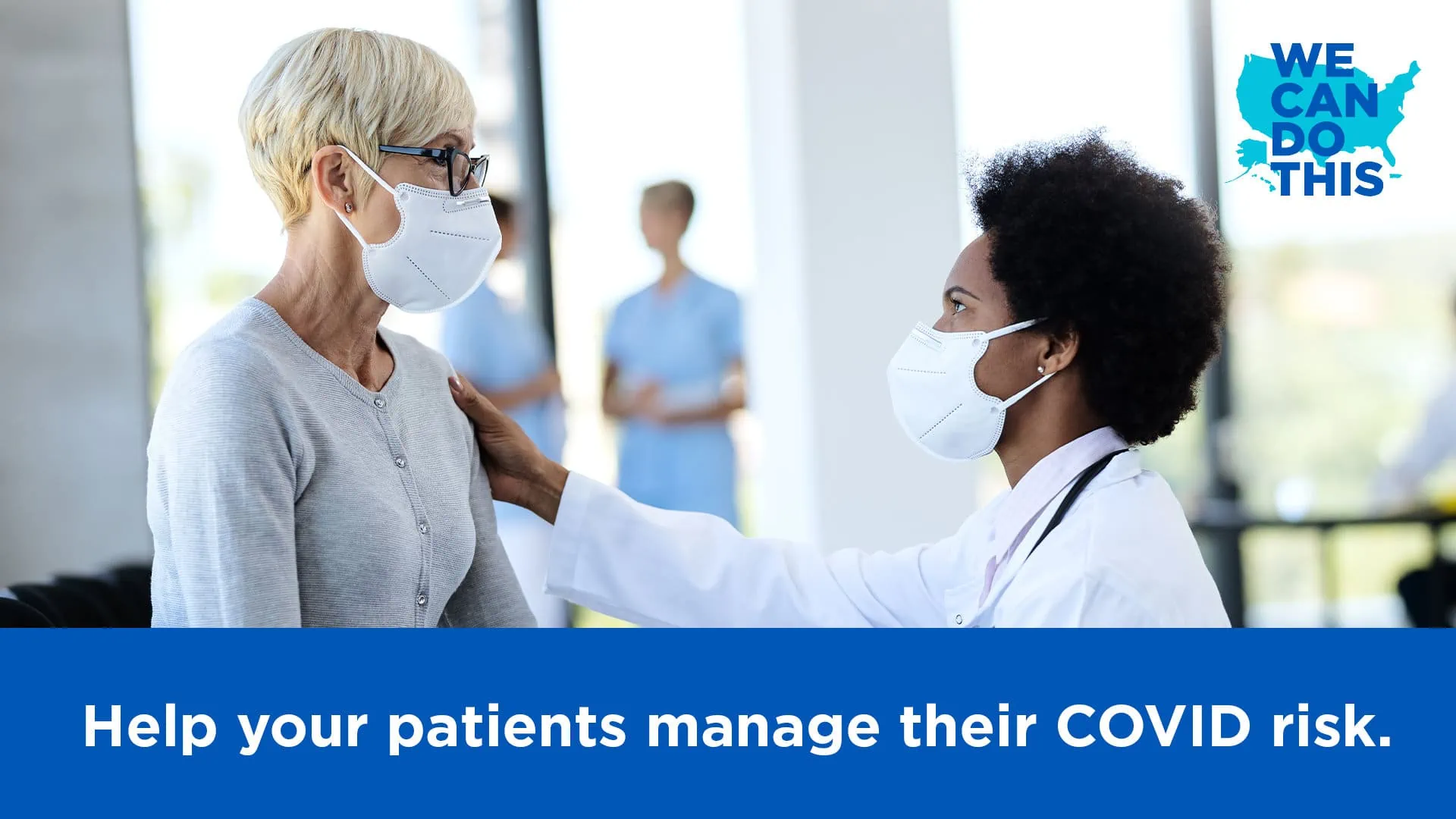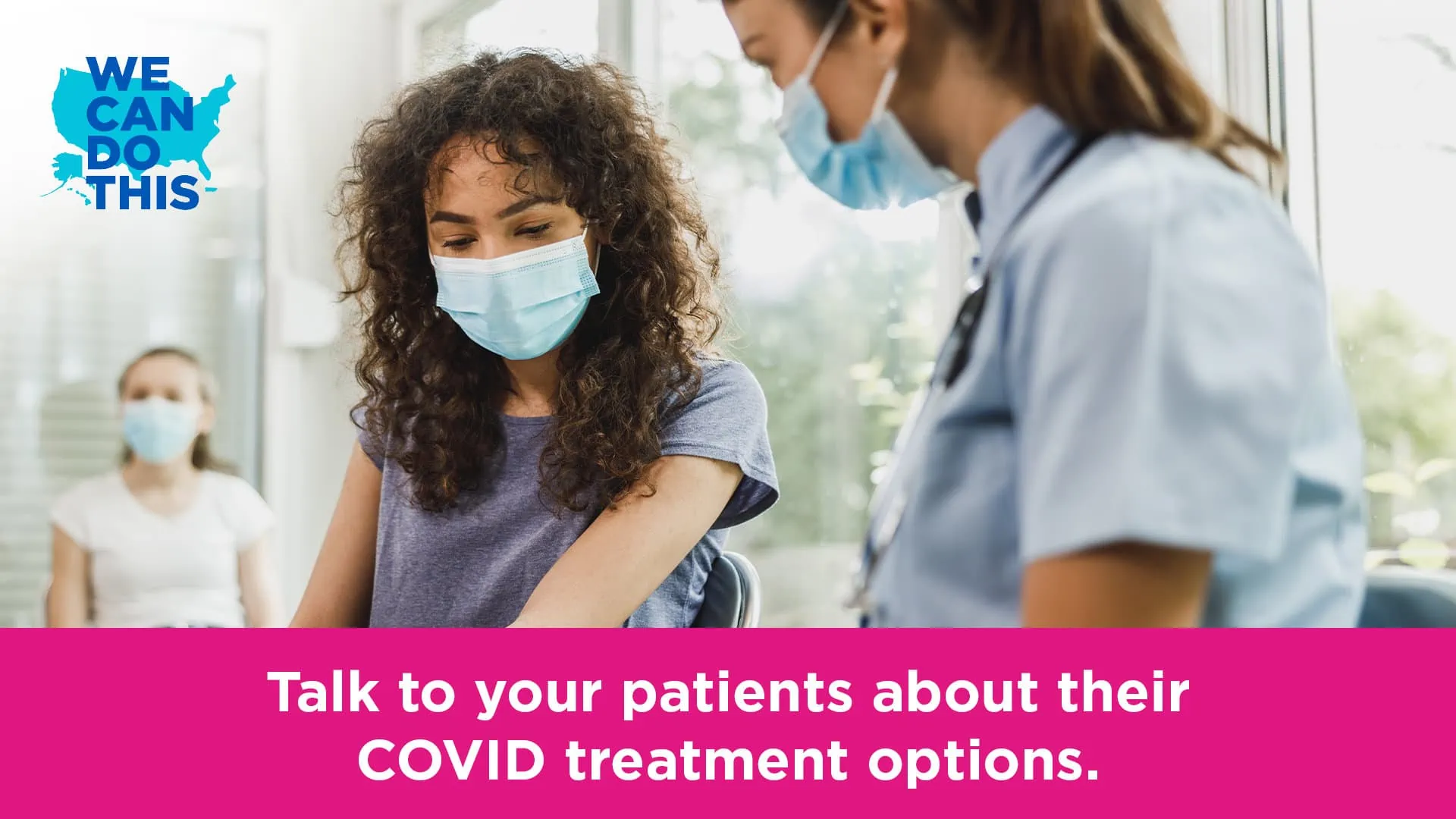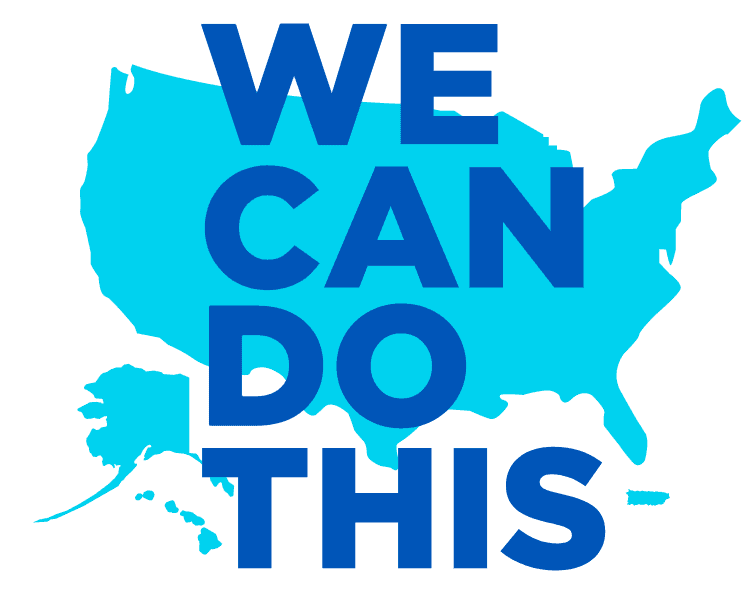Frquently Asked Questions About Updated COVID-19 Vaccines
Answers to common questions about updated COVID-19 vaccines


The National Hispanic Medical Association and the U.S. Department of Health and Human Service’s COVID-19 Public Education Campaign, We Can Do This, have partnered to educate patients about their risk for severe COVID and the availability of treatments.
The U.S. Department of Health and Human Services We Can Do This COVID-19 Public Education Campaign is a national initiative to increase public confidence in and uptake of COVID-19 vaccines, including boosters and updated vaccines. The Campaign also increases awareness about COVID treatments and heightens urgency to talk to a doctor at first sign of symptoms
The We Can Do This campaign has also created easy-to-understand patient education materials, in both English and Spanish, that explain who is at increased risk for severe illness from COVID, the availability of COVID treatments, and the importance of early treatment. The materials, which include information from the U.S. Centers for Disease Control and Prevention and culturally tailored content from the We Can Do This campaign’s team of multicultural experts, are being shared with NHMA members.

While most people with COVID have mild symptoms, some can get severely ill, require hospitalization, and even die. Educating patients on their risk factors, treatment options, and the timing of when they need to start treatment can help keep them out of the hospital.
We Can Do This is a national initiative to increase public confidence in and uptake of being up to date on COVID vaccines while reinforcing basic prevention measures. Through a nationwide network of trusted messengers and consistent, fact-based public health messaging, the Campaign helps the public make informed decisions about their health and COVID, including steps to protect themselves and their communities. The effort is driven by communication science and provides tailored information for at-risk groups.

Answers to common questions about updated COVID-19 vaccines

Flyer explaining the importance of getting an updated COVID-19 vaccine.

Poster for long-term care facilities to encourage their residents to get updated COVID-19 vaccines.

Poster for long -term care facilities to encourage their staff and residents to get updated COVID-19 vaccines.

Poster for organizations to print and display to encourage people to get updated COVID-19 vaccines.

Poster for vaccine providers to print and display to encourage people to get updated COVID-19 vaccines.
COVID is an infectious disease.
There’s no way to know how COVID will affect you. Most people have a mild case, but it can cause serious illness and death.
COVID has killed more than 1,090,000 people in the United States, making it a leading cause of death.
Some people develop long COVID, where they have symptoms that last for weeks or months.
COVID can even cause some people to develop new health conditions, such as:
Getting and staying up to date with your COVID vaccine can reduce the risk that you’ll:
Anyone who gets sick with COVID can develop long COVID. Researchers are working to better understand why some people do and some people don’t.
So far, studies have found that the following people may be more likely than others to get long COVID:
People who have long COVID can experience a variety of symptoms, some of which may be hard to explain. Commonly reported symptoms include:
If you’re not yet vaccinated, your best protection is to wear a well-fitting mask over your nose and mouth inside public places when the COVID risk to your community is high.
If you’re at higher risk of getting very sick from COVID, you can also protect yourself by:
Everyone ages 6 months and older in the United States should get a COVID-19 vaccine.
The vaccines are free for everyone—citizens and noncitizens alike, regardless of your immigration status.
You don’t need health insurance. And many vaccine providers don’t require any forms of ID.
Vaccines are available from pharmacies, doctors’ offices, community health centers, and many more locations. Most people live within 5 miles of a vaccination site.
You have 3 ways to find vaccines near you:
The available COVID-19 vaccines are given as a shot in the upper part of your arm. Infants and toddlers may receive vaccines in their thighs.
The process is quick and practically painless, because the needle is very thin and the dose is small.
Everyone 6 months or older can get either the Pfizer-BioNTech or Moderna vaccine.
People 12 and older can also choose to get the Novavax vaccine.
Johnson & Johnson’s Janssen vaccine is available in limited situations for people ages 18 and older, such as for those who can’t get the other vaccines for health reasons.
The number of doses you need to stay up to date with your vaccines depends on your age and which vaccine you get.

A selection of outreach resources related to COVID-19 treatment to help prevent serious COVID-19 illness.

Complete resources to help community health workers build vaccine confidence and promote preventive measures in their organizations and communities.

Complete resources to build vaccine confidence and promote preventive measures with agricultural workers.
Learn more by visiting the We Can Do This landing page at wecandothis.hhs.gov.